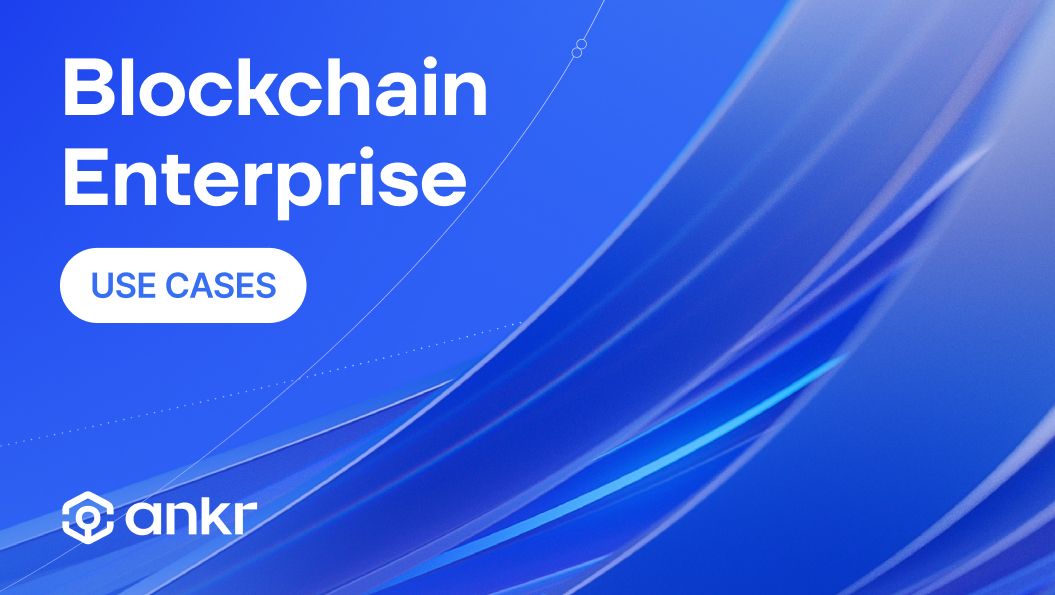Tokenization’s Emergence In 2023 and Enterprise Use Cases

September 8, 2023
6 min read

In March of this year, the CEO of BlackRock (the world's largest asset manager with over $9T) made a bold statement: “The next generation for markets, the next generation for securities, will be the tokenization of securities.” Tokenization of assets is a blockchain use case that involves representing real-world assets (RWAs), such as real estate, shares, commodities, and even loyalty points, as digital tokens. These tokens can then be traded on blockchain-based exchanges or transferred to other users.
This article looks at one of the most significant blockchain narratives of 2023 and how enterprises and Web3 organizations can prepare for the coming wave of tokenization.
The Tokenization Timeline of 2023
Below are a few tokenization happenings that have made headlines so far this year.
-
January: Goldman Sachs announces their digital assets platform GS DAP is live and issues the first fully digital bond on a private blockchain
-
June: Bank of America releases a report that estimates traditional asset tokenization reaching over $16 trillion, transforming infrastructure and markets over the next 5-15 years.
-
June: Swift, a global messaging system that connects over 11,000 financial institutions, implements a successful tokenization pilot.
-
July: JPMorgan Chase announces successful tokenization of ownership interests in Money Market Fund (MMF) shares as collateral.
-
September: Tokenization Advocacy Group by Coinbase, Circle, and Aave is founded in an effort to expedite tokenizing the “next trillion dollars of assets.”
Why Are Institutions Buying Into Tokenization?
The world's financial and business systems rely on a complex, slow, and fragmented web of technologies that lead to operational friction and wasted time. Tokenization solves this problem by creating a standardized and interoperable way to represent assets and transactions, which can be used to automate and streamline processes across different systems.
In other words, tokenization breaks down silos between different systems, making sharing data and moving assets easier. Here are just some of the benefits:
-
Instantaneous settlement: Tokenization can enable real-time settlement of asset transactions, reducing counterparty risk and improving efficiency by eliminating the need for many intermediaries to process and approve transactions.
-
Reduced fees: Tokenization can automate many of the manual processes involved in trading and managing assets, leading to significant cost savings by reducing the need for paperwork, reconciliation, and other administrative tasks.
-
Increased liquidity: Tokenized assets can be divided into smaller denominations and traded on exchanges, making them more liquid and accessible to a broader range of investors by reducing the minimum investment threshold and making it easier to trade assets.
-
Enhanced transparency: Blockchain technology provides a public and tamper-proof ledger of all asset transactions, which can help to increase transparency and accountability in the financial system by making it easier to track and audit asset ownership and transactions.
-
Expanded access: Tokenization can democratize access to assets by making them accessible to retail investors and those in emerging markets by reducing the barriers to entry, such as high minimum investment requirements and complex paperwork.
Enterprise Use Cases for Tokenization
Here are some specific examples of how blockchain tokenization is being used in different industries:
-
Retail: Tokenization enables new ways to interact, pay, create, and earn with digital tokens used to represent information and provide new frameworks for rewards, access, and ownership. From social media to eCommerce, tokenization is unlocking new experiences, investment mechanisms, and income streams for consumers and businesses alike.
-
Healthcare: Tokenization is transforming healthcare by improving interoperability between providers and systems. Tokenized medical records and other sensitive data can be stored on a tamper-proof ledger, ensuring a higher standard of privacy and security.
-
Finance: Tokenization is creating a new foundation for financial operations, from banking to exchanges. Enhanced on-chain ownership, tracking, transparency, and accelerated settlement are making financial transactions faster, more scalable, and more affordable. Tokenization also enables 24/7 trading of all desired digital security tokens.
-
Supply chain: Tokenization is revolutionizing supply chains by providing transparency, traceability, and security at every step of a product's journey. Immutable record-keeping minimizes the potential for fraud or errors, optimizes supply flows, and increases trust among all participants.
-
Real estate: Tokenization is increasing the transparency and security of title records, reducing transaction costs, and expediting property transfers. A new framework for mitigating fraud and property ownership management is emerging, providing a more efficient and equitable real estate market for all.
-
Energy: Tokenization enables individuals and organizations to trade energy as a commodity and sell excess power back to the grid. This creates new revenue streams for energy producers and harnesses a secure and transparent means of tracking energy production and consumption.
Enable Tokenization for Your Enterprise With Ankr
Best Practices for Blockchain Infrastructure Behind Tokenization
Private: In July of this year, Bank of America released a Tokenization Report that detailed the benefits of tokenization and that blockchains such as Avalanche allowed for the modular creation of dedicated private blockchains on top of the network. A private blockchain is a blockchain network that is permissioned, meaning that only authorized participants can join the network. This can be important for enterprises that want to keep their data and transactions private.
I’ll speak from a highly regulated U.S. bank. We are actually not allowed to do anything on a public blockchain, be it permissionless or otherwise. The rationale being safety and soundness. Most of the development you will see certainly from the U.S. banks, JP (Morgan), ourselves and many of the others, will be on a private blockchain. – Mathew McDermott, head of Digital Assets at Goldman (source: Ledger Insights)
Interoperable: An interoperable blockchain is a blockchain network that can communicate with other blockchain networks. This is important for enterprises that want to be able to exchange data and assets with other organizations.
Secure: A secure blockchain is a blockchain network that is protected from unauthorized access, hacking, and fraud. This is important for enterprises that want to protect their data and assets.
Scalable: A scalable blockchain is a blockchain network that can handle a large number of transactions without compromising performance. This is important for enterprises that want to be able to process a high volume of transactions.
Compliant: A compliant blockchain is a blockchain network that complies with all applicable laws and regulations. This is important for enterprises that want to avoid regulatory scrutiny.
Ankr's customizable blockchain infrastructure is designed to deliver all of the above benefits for enterprises.
Create Your Private Blockchain With Ankr
Blockchain creation as a service: Ankr empowers enterprises by creating highly customizable private blockchains on top of various blockchain ecosystems. Ankr offers diverse options for launching your blockchains with customizability at every level for infrastructure built around your unique use case. As the approved infrastructure partner for building dedicated blockchains on ecosystems like Polygon, Avalanche, and zkSync, Ankr simplifies blockchain development for all use cases. Ankr creates blockchains for projects while satisfying every requirement for infrastructure and engineering like validators, RPC nodes, block explorers, testnets, staking platforms, and more for completely custom blockchain solutions.
Join the Conversation on Ankr’s Channels
Twitter | Telegram Announcements | Telegram English Chat | Help Desk | Discord | YouTube | LinkedIn | Instagram | Ankr Staking



